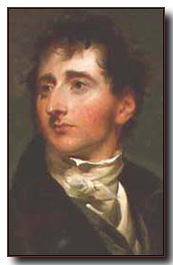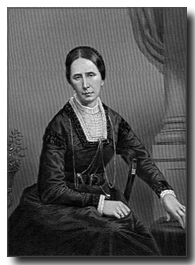The Role of Human Sympathy in the Work of Social Justice Part II
- DONALD DEMARCO
"Recommend to your children virtue," Beethoven advised, "that alone can make them happy, not gold." The fact that he had no children of his own does not detract from the legitimacy of these words. Let us consider one man who lived by the spirit of this maxim, Sir Francis Burdett.
 |
Sir
Francis Burdett
(1770-1844) |
In 1820, when an unarmed and orderly crowd of 60,000 men, women, and children were charged by a regiment of cavalry who slashed at them with sabres and trampled them under their horses' hoofs, Sir Francis denounced the authorities who were responsible for the attack, which came to be known as the "Peterloo Massacre". His sharp denunciation, however, resulted in a fine of 2,000 Pounds and a sentence of three months in prison. It was not the only time Burdett was imprisoned for expressing his outrage over gross acts of social injustice. But his demonstrations of heroic virtue had their salutary effect on his daughter, Angela, of whom one scholar has stated that "no doubt all her social sympathies were deeply permeated with his influence".
Angela Burdett was twenty-three when she became heiress to her grandfather's enormous fortune. It was said that if her capital were turned into gold-sovereigns, the line would stretch for twenty-four miles. She lived until the ripe old age of ninety, and all that time never veered from the noble path her father blazed for her to follow. She proved to be entirely capable of managing her great wealth and devoting herself to pious and charitable ends (often anonymously). She founded bishoprics and built churches, supported missionaries, patronized scientists, and encouraged education. Her consistent sympathy for the needs of the oppressed and underprivileged was an essential characteristic of her life. Biographer Edgar Johnson said of her that "she was always to regard her position in society as a responsibility and its use for the welfare of others as a duty."
 |
Lady
Burdett-Coutts
(1814-1906) |
Baroness, Lady Burdett-Coutts, who appended "Coutts" to her surname as a condition of her inheritance from her wealthy grandfather, was widely praised and richly honored. She died on December 30, 1906, well on toward her ninety-first birthday. Her body lay in state while a stream of thirty-thousand mourners filed past. She was buried in Westminster Abbey where a very close friend of hers who predeceased her by thirty-six years is also buried. At that time, she was the only woman not of royal birth to be so honored.
Who was this very close friend, the man she referred to, in fact, as her "complementary self"? And what was the common bond that sustained their relationship for a period of thirty-six years? He was none other than Charles Dickens. And the common bond they shared was an abiding sympathy for the downtrodden and a fervent commitment to social justice.
Dickens dedicated Martin Chuzzlewit to her, and the glowing praise he offers Mr. Rogers in The Old Curiosity Shop could well have been applied to Miss Burdett-Coutts: "[he is] one of the few men whom Riches and Honours have not spoiled and who have preserved in High Places active Sympathy with the Poorest and the Humblest of their kind."
Charles Dickens wrote more than 500 letters to Angela Burdett-Coutts. Edgar Johnson, who has studied them carefully and includes more than 280 of them in his book The Heart of Charles Dickens, states that the one theme that predominates refers to the work they were carrying on in the field of social welfare. Concerning Dickens the man, Johnson writes: ". . . how noble and all embracing was his demand for social justice."
Dickens carried on his social justice work almost stealthily, fearing that if his philanthropy were widely known, it would have spoiled the magic of his books. Therefore, he worked through Miss Burdett-Coutts, as her, secretary, as it were, advising and suggesting how her wealth might best benefit humanity. Together, they worked for the abolition of slums, the founding of schools, reclaiming the lives of girls from the streets, honoring the lives of those degraded by poverty. Dickens was anything but an elitist. As he once wrote, "I believe that Virtue shows quite as well in rags and patches as she does in purple and fine linen."
Concerning Dickens the novelist, critical consensus has demonstrated that at the centenary of his death (1970) his standing in English literature is second only to that of William Shakespeare.
In summing up the greatness of Dickens, G. G. Chesterton referred to the novelist's career as his travel, and his life as his joyful association with friends. Thus, he could say that the overriding message that Dickens bequeathed to the world was this: "that comradeship and serious joy are not interludes in our travel; but rather our travels are interludes in comradeship and joy, which through God shall endure forever."
See also, "The Role of Human Sympathy in the Work of Social Justice Part I"
 This is Meaghen Gonzalez, Editor of CERC. I hope you appreciated this piece. We curate these articles especially for believers like you.
This is Meaghen Gonzalez, Editor of CERC. I hope you appreciated this piece. We curate these articles especially for believers like you.
Please show your appreciation by making a $3 donation. CERC is entirely reader supported.

Acknowledgement
DeMarco, Donald. "The Role of Human Sympathy in the Work of Social Justice Part II."
Reprinted with permission of Donald DeMarco.
The Author






